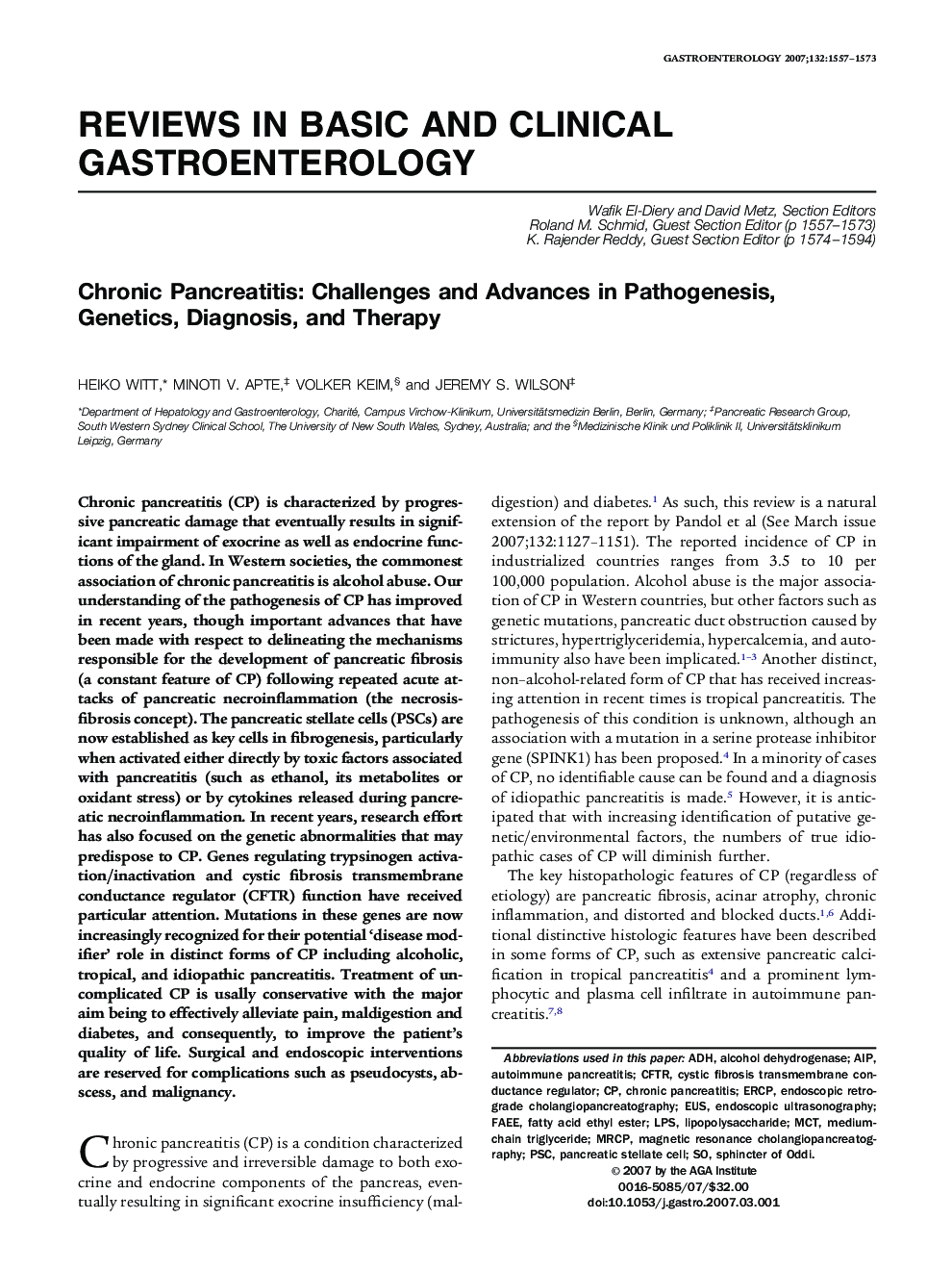| Article ID | Journal | Published Year | Pages | File Type |
|---|---|---|---|---|
| 3298464 | Gastroenterology | 2007 | 17 Pages |
Chronic pancreatitis (CP) is characterized by progressive pancreatic damage that eventually results in significant impairment of exocrine as well as endocrine functions of the gland. In Western societies, the commonest association of chronic pancreatitis is alcohol abuse. Our understanding of the pathogenesis of CP has improved in recent years, though important advances that have been made with respect to delineating the mechanisms responsible for the development of pancreatic fibrosis (a constant feature of CP) following repeated acute attacks of pancreatic necroinflammation (the necrosis-fibrosis concept). The pancreatic stellate cells (PSCs) are now established as key cells in fibrogenesis, particularly when activated either directly by toxic factors associated with pancreatitis (such as ethanol, its metabolites or oxidant stress) or by cytokines released during pancreatic necroinflammation. In recent years, research effort has also focused on the genetic abnormalities that may predispose to CP. Genes regulating trypsinogen activation/inactivation and cystic fibrosis transmembrane conductance regulator (CFTR) function have received particular attention. Mutations in these genes are now increasingly recognized for their potential ‘disease modifier’ role in distinct forms of CP including alcoholic, tropical, and idiopathic pancreatitis. Treatment of uncomplicated CP is usally conservative with the major aim being to effectively alleviate pain, maldigestion and diabetes, and consequently, to improve the patient’s quality of life. Surgical and endoscopic interventions are reserved for complications such as pseudocysts, abscess, and malignancy.
